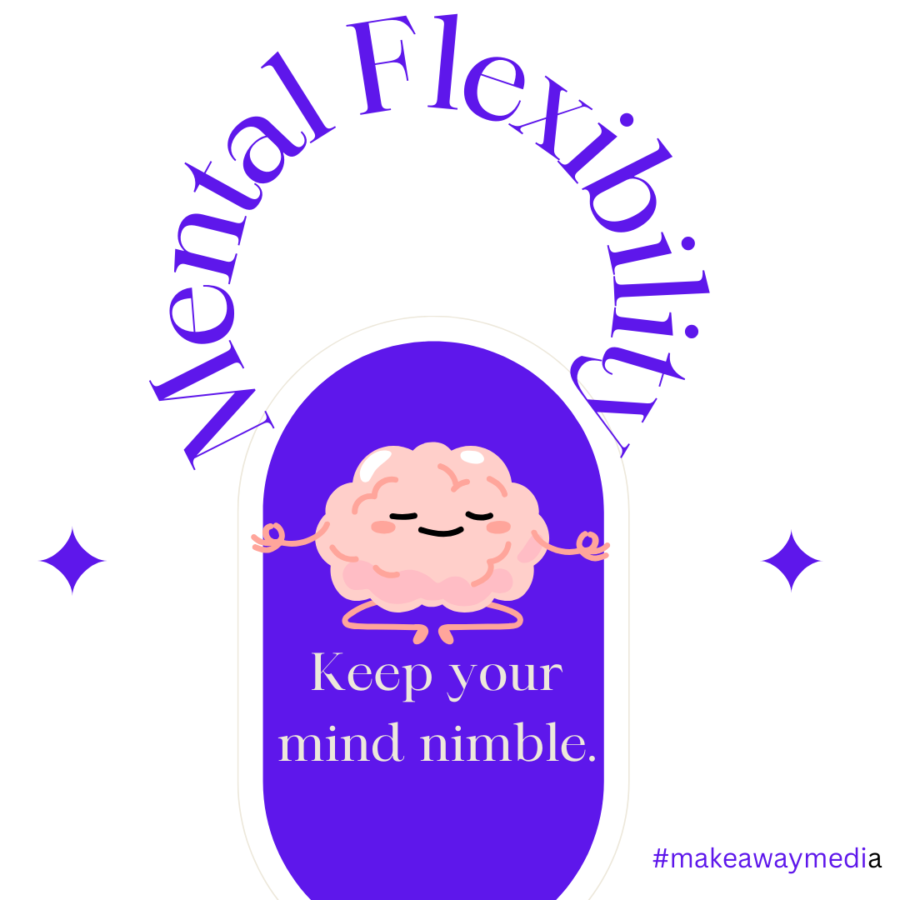It can be difficult to change as we grow older. We’ve become set in our ways it all just feels comfortable. Why bother changing?
Why Mental Flexibility Matters

The reason we need to take risks and be willing to change is because, while routine provides structure and comfort, they can also make us weaker.
Think about your knees after you’ve been sitting or lying down too long. They creak and pop and often hurt when you try to move them again.
Doctors and physical therapists say it is important to the muscular system to be flexible as a person ages to improve balance and prevent falls. Our mind and mental flexibility work the same way. If we never challenge ourselves to try new things, it will get harder and harder to break out of the day-to-day routine.
What is Mental Flexibility?
Mental flexibility is the ability to change your thinking about something. Maybe you learned something as a child or young adult and have since been given new information. Do you stick with the beliefs you had as a child or do you try to understand the new information and adapt your thinking accordingly?
The opposite of mental flexibility is mental rigidity, which is a struggle or inability to change one’s thinking or behavior given new circumstances or information. Mental rigidity makes it almost impossible to continue your development and commitment to being a compassionate person who is capable of self-reflection and empathy.
5 Tips to Gain Mental Flexibility
-
Embrace a Growth Mindset
Start by deciding you want to approach life with an open mind. Shift from a fixed mindset to a growth mindset. View challenges as opportunities for learning and growth. -
Stay Positive
When you encounter obstacles, try to see them as opportunities rather than problems. Instead of saying “I can’t do this,” try “This is a chance to learn something new.” This tweak in your self-talk can instantly make you more adaptable. -
Make it Fun!
Unexpected twists and turns are part of life. Try to make them fun! Let’s say your car breaks down on a road trip. Instead of sulking and complaining, play explore the scenery around you or play a game to pass the time. Laughing and finding joy even in hard moments instantly cheers you up. (It’s scientifically proven!) -
Take Breaks to Untangle Your Thoughts
When you feel stuck, don’t force yourself to keep going. Instead, take a short break. Even just five minutes can be enough to help you untangle your thoughts and figure out your next steps. -
Seek Different Perspectives
Don’t hesitate to ask for help or seek input from others. Getting support can introduce you to new viewpoints and broaden your understanding of a situation. Collaborating with someone else can give you new ideas and help make problem-solving more dynamic and flexible. - Dream Big Dreams One of the best ways I have found to stay mentally flexible is to keep dreaming. When I challenge myself to believe the the impossible is possible and keep taking action until I prove to myself that I can, I am able to stay mentally flexible and see the beauty and magic all around me.
Boost Your Mental Flexibility
If you your mind is feeling just like those creaky joints, resistant to change and progress, it might be time to reignite that fire within you with a dream. If you’ve convinced yourself that you’re too ______ (choose your adjective) for dreams, my new book How to Dream (coming soon) is for you. Once you’re hooked on a good dream, you’ll find yourself diving over mental obstacles right and left.



